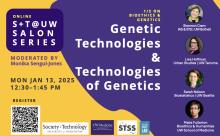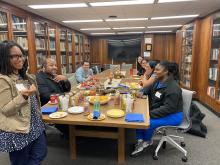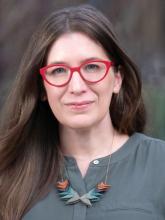Dr. Stephanie Malia Fullerton presents at the S+T Salon on Genetic Technologies, Technologies of Genetics
The Department of Bioethics and Humanities' Dr. Malia Fullerton, along with four other presenters from across University of Washington, will kick off UW’s Society + Technology Salon Series on Monday, January 13, with a free online discussion exploring genetic technologies and technologies of genetics through anthropological, cultural, and philosophical lenses. This event will delve into topics like biostatistics, risk analysis, and more.









